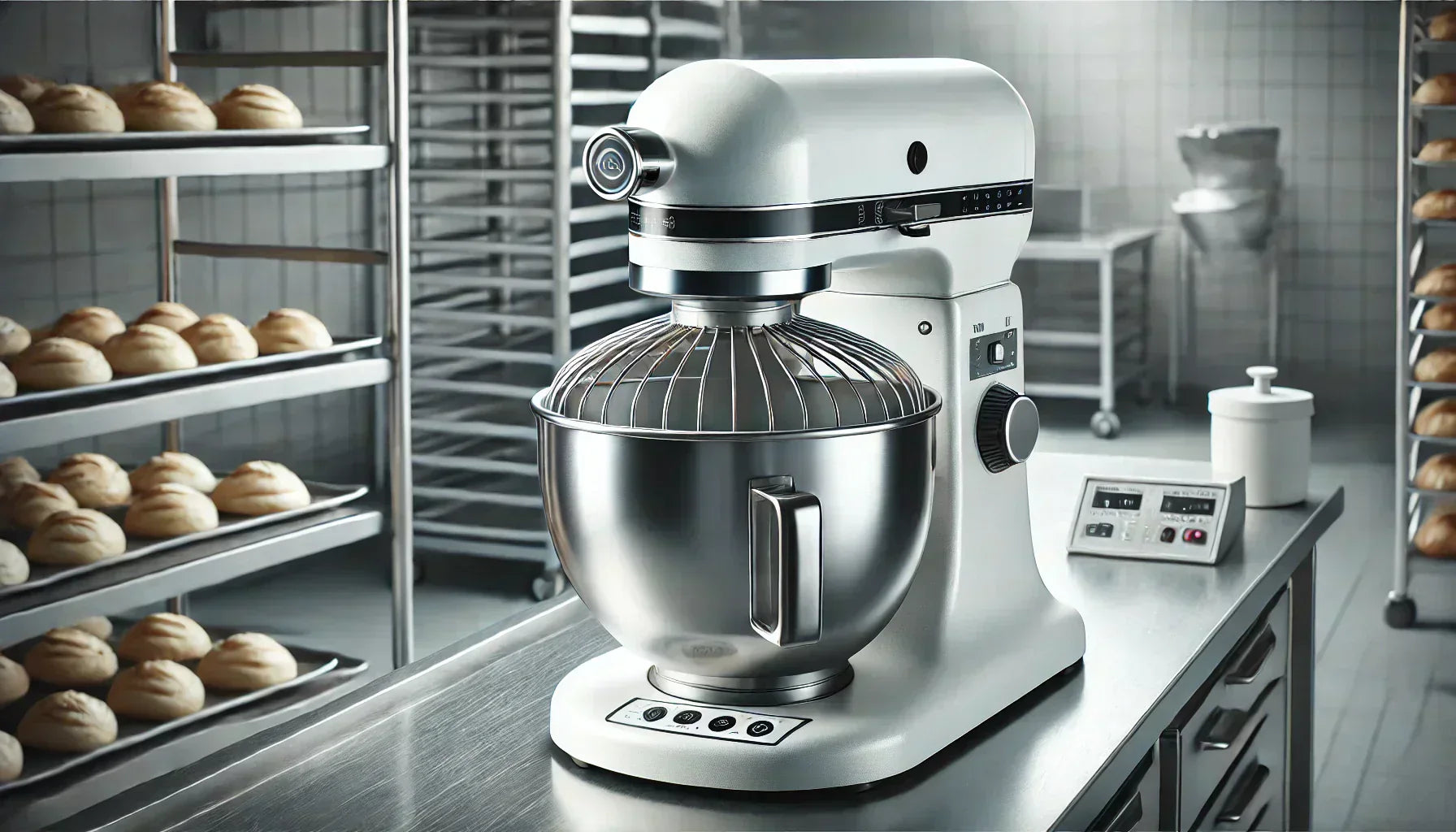
Should You Invest in a Spiral Mixer? Pros and Cons
If you knead dough often (pun intended), a spiral mixer might be your new best friend. Short answer: Yes, they’re worth it—especially for serious bakers and commercial mixer users. They mix faster, improve dough quality, and save effort. But before you buy, let’s explore if it’s right for you!
Understanding Spiral Mixers
What is a Spiral Mixer?
A spiral mixer is a dough-mixing powerhouse, designed to make kneading effortless. Unlike traditional stand mixers, its bowl rotates while the spiral hook stays in place, ensuring a thorough, gentle mix. This results in evenly developed dough without overworking it. That’s why bakeries, pizzerias, and commercial kitchens swear by them.
How Spiral Mixers Work
Picture a smooth, rhythmic kneading motion—like expert hands working dough to perfection. That’s what a spiral mixer does. While the spiral hook kneads, the bowl spins, keeping everything in motion. This technique prevents overheating, ensures even hydration, and keeps the dough’s texture just right. The result? Consistently fluffy bread, chewy bagels, and stretchable pizza dough.

The Advantages of Spiral Mixers
Superior Dough Development
A good dough is all about structure, and spiral mixers deliver. By kneading gently yet efficiently, they prevent over-oxidation, which can dull flavour and compromise texture. The methodical motion helps gluten form naturally, giving bread that perfect chew.
Gentle Mixing Action
Unlike aggressive planetary mixers, a spiral mixer handles dough with care. The slow, deliberate kneading prevents tearing, helping gluten strands strengthen without breaking down. That means better texture, better rise, and better taste.
Reduced Dough Temperature
Ever had dough get too warm during mixing? That’s a problem with traditional mixers. Spiral mixers generate less friction, keeping temperatures steady. Cooler dough means better yeast activity, leading to more flavour and ideal fermentation.
Ideal for Heavy Doughs
If you regularly work with dense dough, a spiral mixer is a lifesaver. It takes on high-hydration, stiff doughs without struggling. That’s why they’re a go-to choice for bakeries and pizzerias.
Bread Dough
Artisan loaves need just the right amount of kneading to create an airy yet structured crumb. A spiral mixer ensures uniform hydration, making sure every loaf has the perfect chew.
Pizza Dough
Great pizza starts with great dough. A spiral mixer helps develop elasticity, so your crust bakes up crisp on the outside and light on the inside.
Bagel Dough
Bagels need strength—too little kneading, and they fall flat; too much, and they get tough. A spiral mixer finds the sweet spot, creating the perfect chewy bite.
Commercial Applications
For bakeries and restaurants, efficiency is everything. A commercial mixer like a spiral model speeds up production while maintaining consistency. That means more bread, pizza, and bagels with less effort. It’s a no-brainer for high-volume operations.
Spiral Mixers vs. Planetary Mixers
Key Differences
Spiral and planetary mixers both have their place, but they serve different purposes. Planetary mixers are versatile, handling everything from cake batter to whipped cream. Spiral mixers, on the other hand, specialise in dough. They knead more thoroughly and keep dough cooler, making them the superior choice for bread and pizza.
When to Choose Each Type
If you bake a bit of everything, a planetary mixer may suit your needs. But if you work with dough often, a spiral mixer is the smarter pick. It handles heavy loads effortlessly and delivers better results for yeast-based recipes. If bread and pizza are your game, a spiral mixer is your MVP.

Cost Considerations and Justification
Initial Investment
Spiral mixers don’t come cheap. They tend to cost more upfront than planetary mixers, but that’s because they’re built for a specialised job. Prices vary based on size and brand, but if dough is central to your baking, the investment is worth every penny.
Long-Term Benefits
Think of a spiral mixer as a long-term business partner. It speeds up production, improves consistency, and reduces labour costs. Over time, it pays for itself in efficiency and quality alone. Plus, they’re built to last, making them a solid investment for serious bakers.
Is a Spiral Mixer Right for You?
Target Audience
Spiral mixers aren’t for everyone, but they’re a game-changer for the right users. If you own a bakery, run a pizzeria, or bake a lot at home, it’s a must-have tool. It’s designed for high-volume mixing, making it perfect for anyone working with dough regularly.
Assessing Your Baking Needs
Ask yourself—do you frequently mix heavy doughs? Are you struggling with inconsistent results or long mixing times? If so, a spiral mixer is the answer. If your baking revolves around cakes, cookies, and light batters, a planetary mixer may be better suited to your needs.
Space and Power Requirements
Spiral mixers are bulkier than planetary mixers, so kitchen space is a consideration. They also need more power, making them better suited for commercial setups or dedicated home baking spaces. If you have the room, they’re well worth the counter space.
Maintenance and Cleaning
Nobody likes cleaning, but spiral mixers make it manageable. While the bowls are usually fixed, they’re easy to wipe down. Keeping the hook and gears lubricated ensures longevity. Regular maintenance keeps it running smoothly for years to come.
Conclusion: Are Spiral Mixers Worth the Investment?
For serious bakers, the answer is a resounding yes. A spiral mixer improves dough quality, boosts efficiency, and takes the hard work out of kneading. It’s an essential tool for commercial bakeries and a worthy investment for dedicated home bakers. If you work with dough often, a spiral mixer isn’t just worth it—it’s a game-changer.
You may also like:
Are Cake Mixers Worth the Investment? Find Out Now
What Makes Some Mixers So Expensive? Insights Revealed
Uncovering the Pros and Cons of Stand Mixers in Canada
What are the Negatives of Using a Spiral Mixer?
The Best Commercial Mixers for Your Business
How to Choose the Right Commercial Mixer for Your Business

